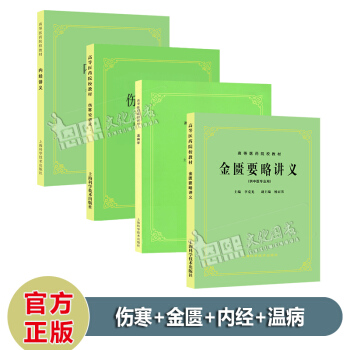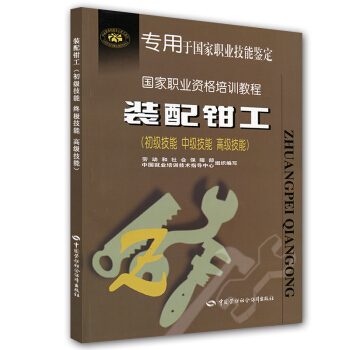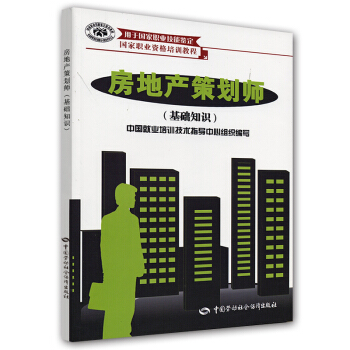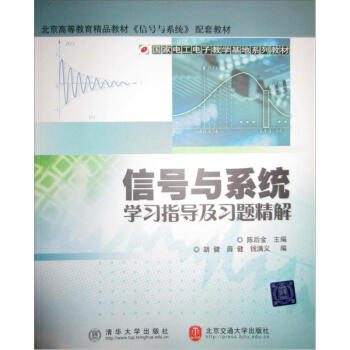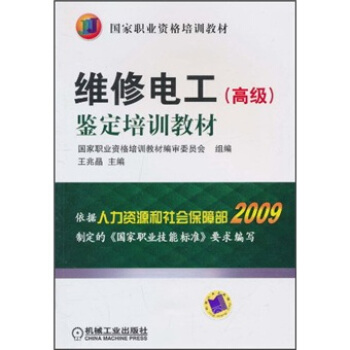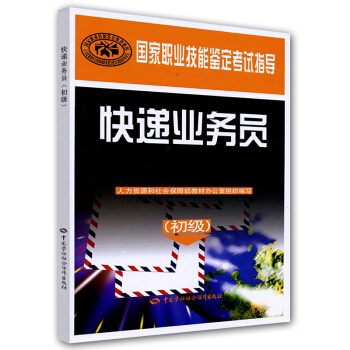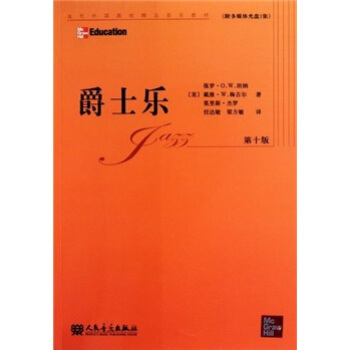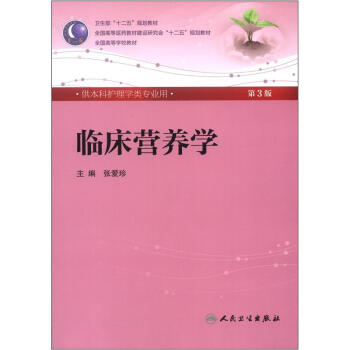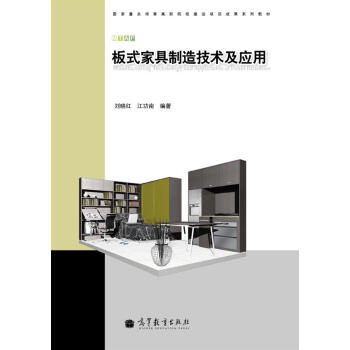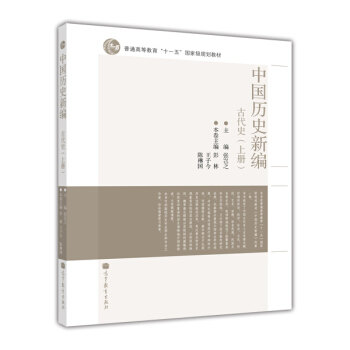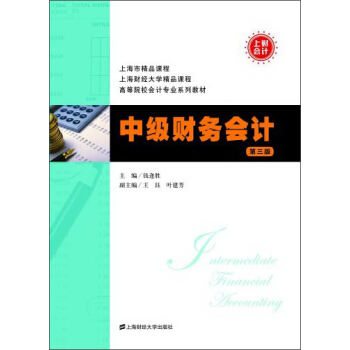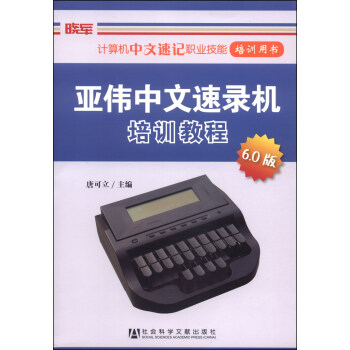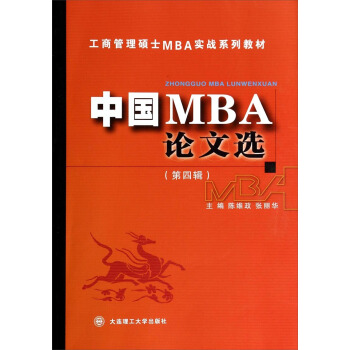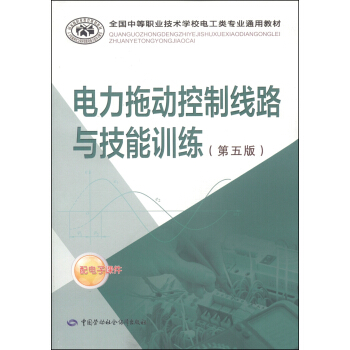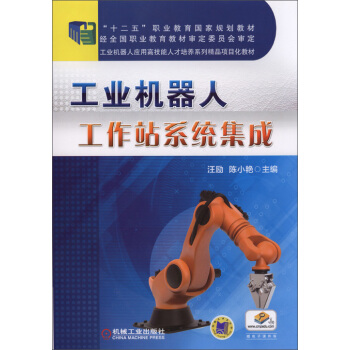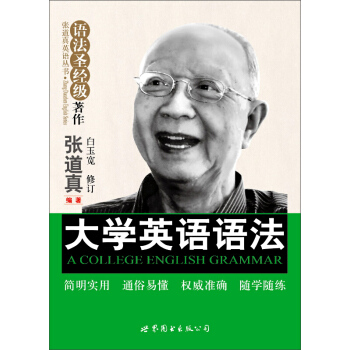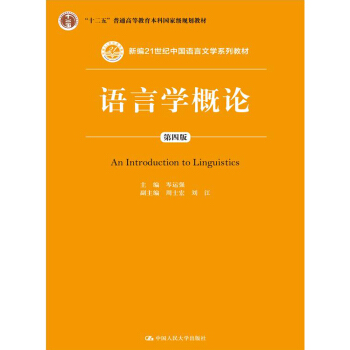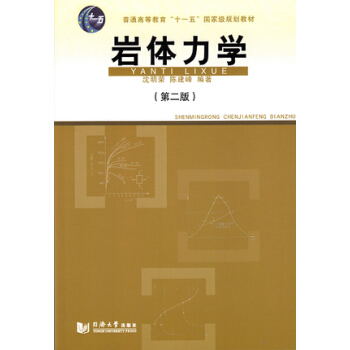

具体描述
内容简介
本教材是根据教育部提出的“面向21世纪教学内容和课程体系改革计划”的基本思想,以满足新世纪教学改革和教材改革为指导思想进行编写的,全书以培养机械系统方案创新设计能力为目标,在内容编排上贯穿了以设计为主线的思想,将全书内容进行了有机的组合,共分为十章,主要内容包括;机构的结构分析,机构的性能分析,平面连杆机构、凸轮机构、齿轮机构、轮系及其设计,其他常用机构及其设计,机构系统动力学设计,机械系统的运动方案及机构的创新设计。为了方便读者掌握重点内容和拓宽知识面,每章后均有“知识要点与拓展”的内容。本书在注重培养学生逻辑思维能力的同时,还配有多媒体教学软件,为开发学生手形象思维能力创造了条件。本书主要作为普通高等院校机械类专业的教学用书,也可作为非机械类专业学生及有关工程技术人员的参考书。目录
Preface to the Second Edition(第2版前言)Preface to the first Edition(第1版前言)
Chapter 1Introduction绪论1
1.1General Information机械总论2
1.2Teaching Content and Object of the Course机械原理课程的研究对象与内容6
1.3Purpose of This Course学习机械原理课程的目的8
Chapter 2Structural Analysis of Planar Mechanisms平面机构的结构分析11
2.1Kinematic Chain and Mechanisms运动链与机构12
2.2Schematic Diagram of Mechanisms机构运动简图16
2.3Degree of Freedom of Planar Mechanisms机构自由度的计算22
2.4Mechanism Analysis and Innovation机构分析与创新30
Chapter 3Kinematic Analysis of Planar Mechanisms平面机构的运动分析41
3.1Introduction 平面机构运动分析概述42
3.2Velocity Analysis with Instantaneous Center用速度瞬心法对机构进行速度分析44
3.3Kinematic Analysis by Graphical Method用相对运动图解法对机构进行运动分析48
3.4Kinematic Analysis by Algebraic Method用解析法对机构进行运动分析60
Chapter 4Force Analysis of Planar Mechanisms平面机构的力分析67
4.1Introduction平面机构力分析概述68
4.2Force Analysis Including Inertia Forces in Mechanisms计入惯性力的机构力分析68
4.3Force Analysis Including Friction in Mechanisms计入摩擦的机构力分析76
4.4Friction and Design of Self�睱ocking Mechanisms摩擦与自锁机构的设计88
Chapter 5Synthesis of Planar Linkages平面连杆机构及其设计95
5.1Characteristics and Types of Planar Linkages平面连杆机构的特点与基本型式96
5.2Fundamental Features of Four�瞓ar Linkages平面连杆机构的基本性质104
5.3Synthesis of Four�睟ar Linkages平面连杆机构的设计112
Chapter 6Design of Cam Mechanisms凸轮机构及其设计137
6.1Introduction凸轮机构概述138
6.2Basic Types of Follower Motion and Design从动件的运动规律及其设计144
6.3Cam Profile Synthesis凸轮轮廓曲线的设计156
6.4Sizes of Cam Mechanisms凸轮机构基本尺寸的设计164
6.5Computer�睞ided Design of Cam Mechanisms计算机辅助凸轮设计170
目录Theory of Machines and Mechanisms (Bilingual Edition)Chapter 7Design of Gear Mechanisms齿轮机构及其设计177
7.1Classification of Gear Mechanisms齿轮机构的分类178
7.2Fundamental Law of Gearing齿廓啮合基本定律180
7.3Involute Properties and Involute Tooth Profiles渐开线齿廓及其啮合特点182
7.4Nomenclatures of Standard Spur Gear and Gear Sizes
渐开线标准直齿圆柱齿轮的基本参数和几何尺寸186
7.5Meshing Drive of Standard Spur Gears渐开线直齿圆柱齿轮机构的啮合传动192
7.6Forming and Undercutting of Gear Teeth渐开线圆柱齿轮的加工及其根切现象202
7.7Nonstandard Spur Gears变位齿轮概述208
7.8Parallel Helical Gears平行轴斜齿圆柱齿轮机构212
7.9Worm and Worm Gears蜗杆传动机构220
7.10Bevel Gears锥齿轮机构226
Chapter 8Design of Gear Trains轮系及其设计233
8.1Classification of Gear Trains轮系及其分类234
8.2Ratio of Ordinary Gear Trains定轴轮系传动比的计算236
8.3Ratio of Epicyclic Gear Trains周转轮系传动比的计算242
8.4Ratio of Combined Gear Trains混合轮系传动比的计算246
8.5Some Considerations for Design of Planetary Gear Train周转轮系设计中的若干问题250
8.6Introduction of Miscellaneous Planetary Trains其他类型的周转轮系简介258
Chapter 9Introduction of Screws, Hook�餾 Couplings and Intermittent Mechanisms
螺旋机构、万向联轴器和间歇运动机构简介265
9.1Screw Mechanisms螺旋机构266
9.2Universal Joints万向联轴器268
9.3Ratchet Mechanisms棘轮机构270
9.4Geneva Mechanisms槽轮机构274
9.5Indexing Cam Mechanisms凸轮式间歇运动机构278
9.6Intermittent Gear Mechanisms不完全齿轮机构280
Chapter 10Spatial Mechanisms and Robotic Mechanisms
空间连杆机构及机器人机构概述285
10.1Introduction of Spatial Mechanisms空间连杆机构概述286
10.2Introduction of Robotic Mechanisms机器人机构概述292
Chapter 11Design of Mechanism Systems机构系统设计299
11.1Introduction of Mechanism Systems机构系统设计概述300
11.2Harmonization Design of Mechanism Motions机构系统的运动协调设计302
11.3Combined Methods of Mechanism Systems机构系统的组合方法304
Chapter 12Fluctuation and Regulation in Speed of Machines
机械系统的运转及速度波动的调节313
12.1Operating Analysis of Machinery机械运转过程分析314
12.2Equivalent Kinetic Model of Mechanism Systems机械系统的等效动力学模型318
12.3Kinetic Equations of Mechanism Systems机械系统的运动方程及其求解326
12.4Periodic Speed Fluctuation and Regulation in a Machine周期性速度波动及飞轮设计330
12.5Aperiodic Speed Fluctuation and Regulation in a Machine非周期性速度波动及其调节338
Chapter 13Balance of Machinery机械的平衡设计343
13.1Introduction 机械平衡概述344
13.2Balance Design of Rigid Rotors刚性转子的平衡设计346
13.3Balance Test of Rigid Rotors刚性转子的平衡试验356
13.4Balance of Planar Mechanisms平面机构的平衡简介360
Appendix 附录一362
Appendix 附录二372
References 参考文献379
前言/序言
This book has been written for mechanical engineering students who are beginning to study the theory of machines and mechanisms or professional English.Since the book was published in 2012, some universities take it as Chinese textbook of theory of machines and mechanisms for undergraduates, some universities take it as English textbook of theory of machines and mechanisms for undergraduates, some universities take it as bilingual education textbook of theory of machines and mechanisms, some universities take it as foreign students textbook of theory of machines and mechanisms,and some universities take it as international class students textbook of theory of machines and mechanisms. Such students will have acquired a set of mechanical engineering knowledge and the ability to use English language to express themselves in spoken and written forms.This edition has been influenced by changes in engineering education, suggestions by colleagues and users, and the author’s checkup.The major revisionary works for publishing this new edition are as follows.Effort has been made to remove all sorts of errors and misprints as far as possible.We adopt a simple mathematical manner for easy comprehension by students in Chapter 5, but there are not any examples to describe the new methods. So many examples have been added in Chapter 5.Geneva wheel with 6 slots will be more helpful to understand the action ratio, so we use a Geneva wheel with 6 slots instead of Geneva wheel with 4 slots.Some of examples have been added in Chapter 13 too.Two�瞕imensional codes are added in this edition to describe the mechanisms animated figures.I acknowledge the efforts of professor He Cencheng of Beijing University of Technology for revisionary and compiled works for this edition.Zhao Jiaheng of Beijing Institute of Technology compiled some examples.Finally, I make an affectionate acknowledge to my PhD doctors team for their support.I am grateful to all readers who pointed out errors and mistakes of the previous edition and gave valuable suggestions.Zhang Chunlin本教材是为机械工程专业的学生学习机械原理课程或专业英语编写的。本教材于2012年出版后,一些学校选其作为本科生机械原理课程的中文教材,教学时讲授中文,英语内容作为参考;一些学校选其作为机械原理课程的英文教材,教学时讲授英文,中文内容作为参考;一些开设双语教学的学校,选其作为本科生的英汉双语教学机械原理课程教材,教学时有时用英文讲授,有时用中文讲授,中、英文内容可用来对比和参考。一些学校选其作为外国留学生的机械原理课程教材,也有一些学校选其作为国际班的机械原理课程教材。本教材不但使学生获得机械原理的基本知识,还可以提高学生英语的口语和写作能力。
经过几年的使用,根据作者自查和用户意见反馈,对其进行了修改、补充和完善,如在平面连杆机构的综合内容中,引入了新方法,但缺少例题佐证。所以,本次修改增加了相应例题;在说明槽轮机构的运动特性时,采用了六槽槽轮代替四槽槽轮,这样就容易理解主动销轮和从动槽轮的转角关系,更容易理解槽轮机构的运动系数。在机械平衡设计一章中也增加了例题。
本次修订还更正了一些文字错误和语法错误,并引入了二维码技术,读者只要用手机扫描插图旁的二维码,就可以观看相应机构的动画,增强了本教材的可读性。
北京工业大学的何岑成老师参与了本次修订工作和英语教材的编审工作,北京理工大学的赵嘉珩为本教材增编了例题。
感谢我的博士生团队为本书的修订所做的工作。
由于编者水平有限,书中难免存在错误和疏漏之处,欢迎广大读者批评指正。
张春林Along with the rapid development of science and technology, the higher education will speed up internationalization. So it is necessary to compile a compatible textbook which not only has Chinese feature, but also makes for globalization. This is a new object that the teaching reform of China s higher education is faced with. On the one hand, the direct adoption of the foreign classical textbooks does not suit the actual state of our teaching in Chinese universities; on the other hand, the Chinese language textbooks cannot be brought in line with the international practice. Therefore, we will compile a bilingual textbook on “theory of machines and mechanisms” with the support of China Machine Press.This book is based on the basic teaching r
用户评价
我得说,《机械原理(英汉双语 第2版)》这本书给了我一个巨大的惊喜。作为一名对机械领域充满好奇但又缺乏专业背景的人,我一直对这类书籍有些畏惧,总觉得会充斥着晦涩难懂的术语和复杂的公式。然而,这本书彻底改变了我的看法。它的内容编排非常精妙,从最基础的机械概念入手,逐步深入,每一个章节的过渡都做得非常自然。更令我欣赏的是,它在解释原理时,总是能够运用大量生动形象的例子,将抽象的概念具象化。比如,在讲解某些机构的运动规律时,它会引用一些现实生活中的装置,让我能够立刻联想到它们的工作原理,这种方式大大降低了学习门槛。我尤其喜欢它在图示方面所付出的努力。那些插图不仅绘制精美,而且包含了大量关键信息,能够非常直观地展示出机械的组成和运动。很多时候,我仅仅是盯着图看,就能对某个机构产生深刻的理解。英汉双语的设置更是为我提供了极大的便利。中文的讲解清晰流畅,让我能够快速掌握核心知识点,而英文部分的专业术语和表达,则帮助我建立起与国际接轨的专业词汇库。我经常会对比阅读,这不仅巩固了我的中文理解,更大大提升了我的英文专业阅读能力。这本书就像一位循循善诱的老师,用最贴心的方式,引导我一步步走进机械的奇妙世界。
评分这本《机械原理(英汉双语 第2版)》真是让我大开眼界,我之前对机械的印象就停留在“齿轮”、“杠杆”这些比较基础的概念上,从来没想过原来机械原理可以这么博大精深,又如此有趣。这本书在结构上非常人性化,每个章节的开始都会有一个简短的介绍,让我对即将学习的内容有一个大致的了解,这对于我这种初学者来说非常重要,避免了上来就迷失在细节中的情况。而且,它的讲解方式非常接地气,虽然是专业书籍,但并没有使用过于生僻的术语,而是用通俗易懂的语言来解释复杂的概念。我特别喜欢它在介绍一些经典机械机构时,会引用一些现实生活中的例子,比如在讲解凸轮机构时,它会提到缝纫机和汽车发动机的凸轮轴,这让我一下子就觉得机械原理离我们很近,并不是实验室里的“象牙塔”理论。插图的设计也是我非常喜欢的一点,那些图纸不仅画得非常精美,而且信息量巨大,每一个细节都经过仔细推敲,能够非常直观地展示出机械的运动轨迹和受力情况。很多时候,我只需要看图,就能大概理解一个机构的工作原理。英汉双语的设置更是为我打开了一扇新的窗户。我一直希望能够提升我的专业英语阅读能力,而这本书恰好满足了我的需求。中文的讲解让我能够快速掌握知识点,而英文部分则让我接触到了最标准的专业术语和表达方式。我常常会花时间去对比中英文的翻译,从中学习到很多地道的英文表达,这对于我以后阅读英文技术文献非常有帮助。
评分不得不说,《机械原理(英汉双语 第2版)》这本书的质量真的超出了我的预期,我本以为会是一本很枯燥的教材,但它却给我带来了很多惊喜。首先,它的内容组织非常清晰,每一章都从最基本的概念讲起,然后逐步深入,让你能够循序渐进地掌握知识。我特别欣赏它在解释原理时,总能运用非常生动形象的比喻和生活中的实例。比如,在讲解凸轮机构的时候,它会用缝纫机上的针杆运动来类比,让我一下就理解了这种机构的运动规律。这种方式真的太棒了,让复杂的理论变得易于理解。而且,书中的插图设计也非常出色,画得非常精美,而且信息量很大,能够非常直观地展示出机械的运动和结构。我常常会花很多时间去研究这些图,感觉就像是在欣赏一幅幅精密的机械画作。英汉双语的对照更是我爱不释手的一大原因。中文的讲解清晰易懂,能够帮助我快速掌握知识点,而英文的专业术语和表达,则帮助我建立了扎实的专业基础。我经常会对比阅读,从中学习到很多地道的英文表达,这对于我以后阅读英文技术文献非常有帮助。这本书不仅让我学到了机械原理的知识,更提升了我的专业英语能力,真是一举两得!
评分天啊,我简直不敢相信我竟然花了这么多时间在这本《机械原理(英汉双语 第2版)》上,但更不敢相信的是,我竟然还乐在其中,甚至有些沉迷。起初,我只是抱着一个半吊子的心态,想说看看机械原理大概是什么样子,顺便学点英语,毕竟双语的书籍听起来就挺唬人的,也算是一种“投资”吧。然而,当我翻开第一页,就被它那严谨又不失趣味的排版吸引了。标题、小标题、正文、插图,每一个元素都恰到好处,仿佛在无声地诉说着机械世界的奥秘。我尤其喜欢那些图示,它们清晰、准确,而且相当有艺术感,很多时候,我只是盯着图看,就能大概领会到其中某个机构的运动规律。当然,最让我惊喜的还是英汉双语的对照。我原本担心会是那种生硬的直译,但这本书的处理方式真的非常巧妙。中文部分流畅自然,解释到位,而英文部分则保留了原汁原味的专业术语和表达方式,很多时候,对比阅读,我能一下子理解那些中文译文中可能模糊的概念。比如,书中对某个连杆机构的描述,中文讲得头头是道,但当我看英文时,才发现原来那个“曲柄”在英文里是“crank”,而“连杆”是“connecting rod”。这种细微的差别,往往能帮助我更深入地理解那个机构的工作原理。更别说,书中那些例题的解析,英文部分往往用更简洁的数学符号和公式来表示,配合中文的详细讲解,我感觉自己的逻辑思维和英文阅读能力都在同步提升。说实话,我本来只是想随便翻翻,没想到现在每次拿起这本书,都像是开启了一场探索之旅,让我对机械这个学科产生了前所未有的兴趣。我已经推荐给我的几个学弟学妹了,希望他们也能感受到这本书的魅力。
评分这本《机械原理(英汉双语 第2版)》真的有点超出我的预期了,我以为这种教材类的书籍要么枯燥乏味,要么就是晦涩难懂,但它给我了一种全新的体验。它的编排方式很现代化,不像我以前看过的很多教科书那样死气沉沉。每次读到一个新的章节,都会先有一个引人入胜的小引言,介绍本章的主要内容和它在整个机械原理中的地位,这点做得非常棒,能够帮助我快速建立起对知识体系的整体认知。然后,就是主体内容的讲解,我特别喜欢它在概念解释上的严谨性和细致性。它不会一下子抛出很多复杂的概念,而是循序渐进,一步一步地引导读者理解。而且,每当引入一个新的术语时,它都会给出清晰的定义,并且在后续的讲解中不断巩固。最令我印象深刻的是,书中有很多大量的插图,这些插图并非简单的示意图,而是经过精心设计的,能够形象地展示出机械运动的过程和机构的组成。我常常会花很多时间去观察这些图,甚至会尝试在脑海中模拟它们的运动,这比单纯看文字描述要有效得多。英汉双语的设计更是锦上添花。我一直觉得,要真正掌握一门技术学科,掌握其专业术语至关重要,而这本书在这方面做得非常出色。中文讲解深入浅出,让我能够轻松理解基本概念,而英文部分的专业词汇和表达方式,则帮助我建立起与国际接轨的知识储备。我发现,很多时候,通过对比中英文的表述,我能够更深刻地理解某些机械原理的精髓,甚至发现中文翻译中可能存在的细微偏差。这本书就像一个桥梁,连接了我对机械理论的理解和对英文专业文献的阅读能力。
评分老实说,我拿到这本《机械原理(英汉双语 第2版)》的时候,并没有抱太大的期待,毕竟“机械原理”四个字听起来就有点吓人。但事实证明,我的顾虑是多余的。这本书的编排设计真的非常用心,每个章节都像一个精心搭建的乐高模型,从基础零件到最终的复杂装置,循序渐进,让你看得懂,玩得转。我特别喜欢它在引入新概念时,会先给出一个非常简洁的定义,然后立刻用几个生动的实例来加以阐释。比如,在讲解“自由度”这个概念时,它会用一个简单的桌子和椅子来做类比,告诉我椅子有几个自由度,桌子有几个自由度,一下子就让我理解了“约束”是怎么回事。而那些插图,简直是这本书的灵魂!它们不仅仅是简单的示意图,而是充满细节和美感的艺术品,我常常会盯着看半天,揣摩那些线条和阴影所传达的信息。我感觉,通过这些图,我仿佛能“看到”机械的运动,而不是仅仅“读到”它。双语对照的设计更是让我惊喜连连。中文部分详细易懂,让我这个初学者也能轻松入门;而英文部分则保留了最原汁原味的专业表达,我常常会把同一个概念的中英文对照着看,这不仅加深了我对知识的理解,更让我学到了很多地道的专业词汇。感觉这本书就像一个经验丰富的向导,用最清晰的路径,带我穿越机械原理的茂密森林。
评分我之前对机械原理一直抱有一种敬而远之的态度,总觉得这东西离我太遥远,太复杂,大概率是跟公式和图纸打交道的枯燥过程。结果,这本《机械原理(英汉双语 第2版)》彻底颠覆了我的认知。它不仅仅是一本教材,更像是一本开启我探索机械世界大门的钥匙。首先,它的内容组织非常有条理,每个章节都围绕着一个核心主题展开,从基础概念到复杂的应用,层层递进,不会让人感到突兀。我尤其欣赏它在理论讲解上的深度和广度,它没有停留在表面的介绍,而是深入到原理的本质,并且辅以大量的实例来佐证。比如,在讲解机构的自由度时,它不仅给出了计算公式,还详细分析了不同类型的机构在实际应用中是如何体现自由度的。而且,书中的插图简直就是艺术品!那些细腻的线条,精准的比例,生动地描绘出各种机械装置的工作状态,让我有一种身临其境的感觉,仿佛我正在亲手拆解和组装这些机械。最让我觉得神奇的是它的双语设计。我原本只是想通过它来提升一下我的英语水平,但没想到,它在中文和英文的对照上做得如此巧妙。中文的解释清晰易懂,而英文部分则充满了原汁原味的专业表达。我经常会把同一个概念的中英文对照着看,这种方式让我对很多机械术语的理解上升到了一个新的高度。我发现,有些概念,用英文来表述反而更加简洁和精确,而中文的解释则提供了更丰富的背景信息和语境。这本书记就像一个经验丰富的导师,用最清晰易懂的方式,引导我走进机械的殿堂。
评分这本《机械原理(英汉双语 第2版)》真的是一本让我爱不释手的书!我之前对机械原理的了解仅限于一些零散的概念,总觉得它离我的生活很远。但这本书完全颠覆了我的想法,它就像一座桥梁,把我与这个充满魅力的领域连接了起来。首先,它的内容组织非常系统,从最基本的概念到复杂的机构,层层深入,逻辑性极强。我特别喜欢它在解释原理时,会用非常形象的比喻和贴近生活的例子。比如,在讲解杠杆原理的时候,它会用跷跷板来类比,让我瞬间就明白了力臂和力矩的关系。这种寓教于乐的方式,让学习变得轻松愉快。而且,书中的插图简直是神来之笔!每一张图都画得非常清晰、准确,而且信息量巨大,能够非常直观地展示出机械的运动过程和结构。我常常会花很多时间去研究这些图,甚至会在脑海中模拟它们的运动,感觉就像是在玩一个有趣的解谜游戏。英汉双语的设计更是锦上添花。中文的讲解让我能够快速吸收知识,而英文部分的专业术语和表达,则帮助我建立起了一套扎实的专业词汇体系。我发现,通过对比阅读,我不仅加深了对机械原理的理解,更提升了我的英文阅读能力,一举两得!这本书绝对是我近年来最值得投资的一本教材。
评分这本《机械原理(英汉双语 第2版)》绝对是我近年来读过的最给力的一本技术类书籍了!我之前一直觉得机械原理就是那种深奥难懂的学问,但这本书完全打破了我的刻板印象。首先,它的内容组织非常有逻辑,从最基础的概念讲起,然后逐步深入到更复杂的机械系统。每一章都像是在为下一章打基础,让我能够很顺畅地理解整个知识体系。我最喜欢的是它在解释概念时,总能找到非常贴切的比喻和生活中的例子。比如,在讲解齿轮传动的时候,它会用自行车链条和齿盘来类比,让我一下子就明白了其中的传动关系,这种方式真的太有帮助了!而且,书中的插图简直就是艺术品,不仅清晰美观,而且能够非常直观地展示出机械的运动状态。很多时候,我只需要看图,就能对某个机构的原理了然于胸。英汉双语的设计更是让我眼前一亮。中文的解释足够详细,让我能够快速理解,而英文的专业术语和表达方式,则帮助我建立了扎实的专业基础。我发现,通过对比阅读,我能够更深入地理解一些细微的概念,甚至纠正了我之前一些不准确的认知。这本书记就像一个经验丰富的工程师,用最简单明了的方式,向我展示了机械世界的奇妙。我强烈推荐给所有对机械感兴趣的朋友,绝对不会让你失望!
评分说实话,我拿到这本《机械原理(英汉双语 第2版)》的时候,并没有抱太大期望,毕竟机械原理在我看来就是一堆复杂的公式和图纸。但是,当我真正开始阅读它的时候,我才发现我错了。这本书的设计简直太棒了!首先,它的排版非常清晰,字体大小适中,段落分隔合理,读起来非常舒服。而且,它采用了双语对照的方式,中文部分讲解得很详细,每一个概念都解释得很透彻,而英文部分则保留了最原汁原味的专业术语。我尤其喜欢它在图示方面所下的功夫,那些插图画得非常精美,而且信息量巨大,能够非常直观地展示出机械的运动过程和结构。我常常会花很多时间去研究这些图,甚至会尝试在脑海中模拟它们的运动,感觉就像是在玩一个高科技的拼图游戏。更让我惊喜的是,这本书的讲解方式非常生动有趣,它并没有使用那种枯燥乏味的理论说教,而是通过大量的实例和生动的比喻来解释复杂的概念。比如,在讲解连杆机构时,它会用风扇的转动来类比,让我一下子就理解了其中的原理。而且,书中还包含了很多经典的机械原理案例,让我有机会接触到很多我从未听说过的精妙设计。双语对照的学习方式,更是让我受益匪浅。我感觉自己的机械原理知识在不断增长,同时我的英语阅读能力也在同步提升。我甚至觉得,这本书不仅仅是一本教材,更像是一本能够带我进入机械世界的神奇指南。
评分很好很好很好很好很好
评分书已经收到,要好好学习
评分书本不错,印刷精明,无破损很好。
评分很好,很清晰。
评分买英汉对照的主要是为了学专业词汇方便??
评分买英汉对照的主要是为了学专业词汇方便??
评分内容少,侧重于理论,英汉双语便于学习。
评分此用户未及时填写评价内容,系统默认好评!
评分书本不错,印刷精明,无破损很好。
相关图书
本站所有内容均为互联网搜索引擎提供的公开搜索信息,本站不存储任何数据与内容,任何内容与数据均与本站无关,如有需要请联系相关搜索引擎包括但不限于百度,google,bing,sogou 等,本站所有链接都为正版商品购买链接。
© 2026 windowsfront.com All Rights Reserved. 静流书站 版权所有

